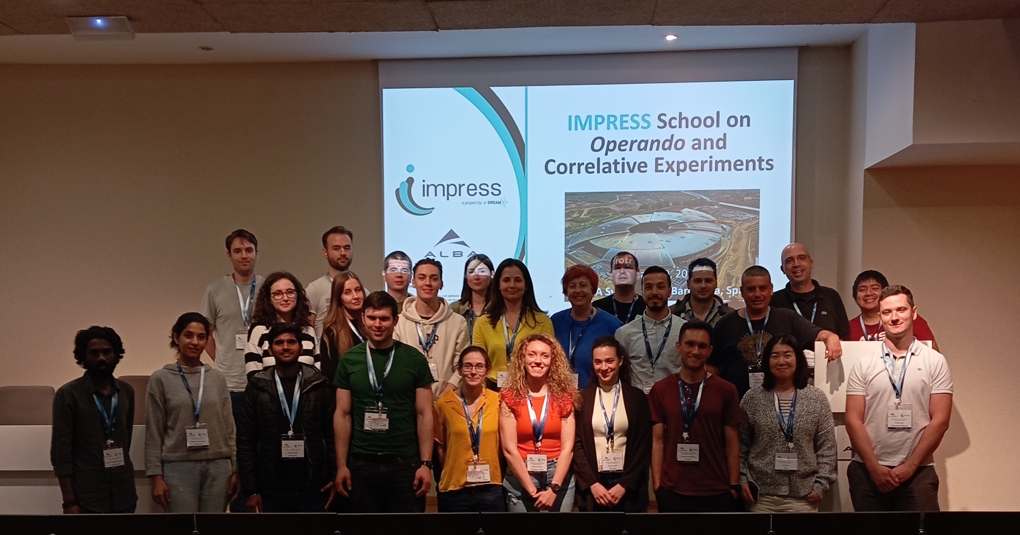
IMPRESS School 2025: A Week of Cutting-Edge Learning at ALBA Synchrotron

The IMPRESS School on Operando and Correlative Experiments, organized and hosted at ALBA Synchrotron, successfully delivered an intensive training program on advanced techniques to a group of outstanding early-stage researchers
The IMPRESS School on Operando and Correlative Experiments, held from May 5 to 9 at ALBA Synchrotron in Barcelona, brought together 20 selected early-stage researchers from across Europe for an intensive, hands-on training program focused on advanced characterization techniques.
This unique initiative, organized under the umbrella of the EU-funded IMPRESS Project, aimed to empower young scientists with the skills needed to tackle complex materials and life science challenges using cutting-edge operando and correlative workflows.
Over the course of five days, participants engaged in a dynamic mix of expert-led lectures, hands-on practical sessions, and collaborative student activities, all within the world-class facilities of ALBA. The School highlighted the interdisciplinary potential of combining synchrotron techniques with advanced instruments and tools, aligning with IMPRESS’s mission to develop a next-generation interoperable platform for in-situ and operando experiments involving transmission electron microscopy.
A Deep Dive into Multimodal Characterization
Lectures were delivered by leading scientists from institutions across Europe, covering topics such as operando synchrotron and electron microscopy, multiscale and multimodal imaging, and in-situ techniques for catalysis, battery research, spintronics, and life sciences.
Participants had the opportunity to work in small groups during practical sessions held at several ALBA facilities and laboratories. Students gained hands-on experience on Operando X-ray Absorption Spectroscopy (XAS), X-ray Diffraction (XRD), Synchrotron FTIR, Small-Angle X-ray Scattering (SAXS), and Macromolecular Crystallography, among others.
Student-Led Engagement
The School emphasized active participation: throughout the week, attendees presented their research challenges during poster sessions and refined their problem-solving approaches through continuous feedback from peers and mentors. The program concluded with student presentations, where each participant proposed integrated solutions based on the new tools and knowledge they had acquired.
All participants demonstrated exceptional engagement and provided valuable feedback and contributions throughout the week. At the conclusion of the School, final prizes were announced. Cecilia Irene Gho from the Polytechnic University of Turin, Italy, received the award for Best Presentation, while Nemo Andrea from TU Delft & Leiden University, the Netherlands, was recognized with the Best Poster award. In addition, special mentions for outstanding participation were given to Chrysanthi Gkili from the University of Montpellier, France, and Tomas Hrbek from Charles University, Prague, Czech Republic.
Key Themes and Impact
While the primary focus was on energy-related materials such as electrocatalysts and battery systems, the School also featured compelling sessions on biological imaging and magnetism, showcasing the broad applicability of the methods discussed.
The IMPRESS ALBA School has not only advanced the technical capabilities of its participants but also fostered a new network of early-career scientists committed to pushing the frontiers of operando and correlative research.